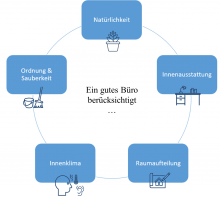-
DIE ZEIT | Nachrichten, News, Hintergründe und Debatten
USA: Donald Trump entlässt umstrittene Heimatschutzministerin Kristi Noem
05/03/26 20:06:40
Kristi Noem muss ihr Amt als Heimatschutzministerin der USA räumen. Sie war nach mehreren tödlichen ICE-Einsätzen unter Druck geraten.
Sicherheitslage in Deutschland: Wie Salafisten den Irankrieg für sich nutzen
05/03/26 19:58:21
Steigt angesichts der Eskalation im Iran das Terrorrisiko? Experten sehen eine Gefahr durch Netzwerke des Regimes. Hassprediger versuchen, Wut unter Muslimen zu schüren.
-
DER SPIEGEL - Schlagzeilen – Tops
Kristi Noem: Donald Trump beruft umstrittene Heimatschutzministerin ab
05/03/26 19:56:00
Donald Trump hat Heimatschutzministerin Kristi Noem geschasst. Noem stand infolge der umstrittenen ICE-Einsätze unter Druck, der US-Präsident will sie durch den republikanischen Senator Markwayne Mullin ersetzen.
Iran-Krieg – News am Donnerstag: EU-Kommission warnt vor möglicher Migrationskrise
05/03/26 16:01:00
Die EU hält aufgrund des Irankriegs eine Fluchtbewegung erheblichen Ausmaßes für möglich. Trump will persönlich über die neue Führung in Teheran mitentscheiden – eine Kurdenoffensive gegen das aktuelle Regime fände er »wunderbar«. Die Liveanalyse.
News des Tages: Mojtaba Khamenei in Iran, Rumoren in der AfD, H&M-Betriebsräte in Bedrängnis
05/03/26 18:12:00
Die Verwandtenaffäre könnte AfD-Chef Chrupalla gefährlich werden. In Iran rückt der Sohn des getöteten Ajatollah Khamenei ins Zentrum der Machtkämpfe. Und: Vorwürfe gegen den Modekonzern H&M. Das ist die Lage am Donnerstagabend.
AfD: Wie der Iran-Krieg die Partei spaltet
05/03/26 18:42:00
In der AfD tobt ein Richtungsstreit über den Irankrieg. Ein Teil der Rechtsextremen lehnt die Linie der AfD-Chefs Chrupalla und Weidel ab. Eine Parteikollegin soll gar handgreiflich geworden sein.
China: Historisches Eingeständnis zur Eröffnung des Nationalen Volkskongresses
05/03/26 17:29:00
Erstmals seit drei Jahrzehnten schraubt China seine Wachstumsprognose herunter. Die Probleme im Land sind groß. Und dann ist da Donald Trump, der mit seinem Handelskrieg auch Peking zusetzt.
-
DER SPIEGEL - Videos
Nationaler Volkskongress in China: Einblick in Chinas Machtzentrale – »Eine große Show«
05/03/26 17:59:00
Abgeordnete aus ganz China sind angereist, um abzunicken, was Staatschef Xi Jinping will: Journalisten bekommen beim Volkskongress einen kleinen Einblick in die Machtzentrale. SPIEGEL-Korrespondentin Maria Stöhr berichtet von ihren Eindrücken.
Epstein-Files: So erkennt man KI-Fakes auf Social Media
05/03/26 10:46:00
Ghislaine Maxwell in Kanada? Jeffrey Epstein in Israel? Seit der Veröffentlichung der Epstein-Files kursieren unzählige KI-Bilder auf Social Media. Unsere Dokumentation erklärt, wie man nicht auf sie hereinfällt.
Iran-Krieg und Völkerrecht: Richard David Precht, Roderich Kiesewetter und Azadeh Zamirirad diskutieren
04/03/26 19:44:00
Im SPIEGEL-Talk diskutieren Richard David Precht, CDU-Politiker Roderich Kiesewetter und Iranexpertin Azadeh Zamirirad über die Zukunft des iranischen Volkes, den Flächenbrand in Nahost und den Schulterschluss von Friedrich Merz mit Donald Trump.
Iran-Krieg: US-Torpedo versenkt iranische Fregatte vor Sri Lanka - Video
04/03/26 18:47:00
Der US-Verteidigungsminister spricht von der »ersten Versenkung eines feindlichen Schiffs durch einen Torpedo seit dem Zweiten Weltkrieg«: Diese Bilder sollen den U-Bootangriff auf eine iranische Fregatte vor Sri Lanka dokumentieren.
Donald Trump führt Iran-Krieg, während nebenan seine Clubmitglieder speisen
04/03/26 17:32:00
In Donald Trumps Clubhaus in Mar-a-Lago erlebte unser Reporter einen skurrilen Abend: Während der Präsident den Irankrieg verfolgte, speisten nebenan reiche Gäste. Dann kam der Commander-in-Chief an seinen Tisch.
-
-
Wissenschaft-aktuell
Der Gipfel des Gletscherschwunds
17/12/25 00:00:00
In den Alpen könnten dieses Jahrhundert nahezu alle bis auf gerade mal 20 Gletscher verschwinden – Höhepunkt des Schwunds bis 2040 erwartet
Zugreifen mit Schallwellen
10/12/25 00:00:00
Neuer Chip kann über filigrane Struktur Schallwellen gezielt manipulieren und zu einem vielseitigen, akustischem Werkzeug verwandeln.
Warum die Erde unter Santorin bebt
05/12/25 00:00:00
Detaillierte Bebenanalyse offenbart eine komplexe Dynamik flüssigen Magmas unter dem hellenischen Inselbogen
-
Spektrum.de RSS-Feed
Übergewicht: Kilos kommen nach Absetzen von Abnehmspritzen schnell wieder
05/03/26 17:30:00
Mit Abnehmspritzen purzeln Pfunde. Doch die Behandlung muss vermutlich lebenslang fortgesetzt werden, sonst droht das Gewicht wieder rasant zu steigen.
Artenschutz: Bundestag erleichtert Abschuss von Wölfen
05/03/26 16:43:00
In Deutschlands Wäldern sind mehr als 1600 Wölfe unterwegs. Die Tiere stehen unter Artenschutz - aber spätestens, wenn sie Schafe töten, soll ein Abschuss leichter möglich werden.
Mitgefühl: Wie Empathie mit der Geografie zusammenhängt
05/03/26 14:00:00
Männer attestieren sich im Mittel weniger Mitgefühl als Frauen – weltweit. Aber je näher am Äquator, desto kleiner der Unterschied zwischen den Geschlechtern.
Die großen Fragen der Wissenschaft: Wie sieht die Schule der Zukunft aus, Kai Maaz?
05/03/26 13:00:00
Ist Schule noch zu retten? Schlechte Infrastruktur, überkommene Lehrpläne, wachsende psychische Probleme. Bildungsforscher Kai Maaz erklärt, wie gesundes Lernen funktionieren kann.
Rückblick auf die Sonnenaktivität im Februar : Extreme auf der Sonne
05/03/26 12:00:00
Der Februar begann mit einem Paukenschlag: Eine zunächst noch kleine Fleckengruppe wuchs zu einem Monster heran. Zwei Wochen später zeigte sich die Sonne fleckenfrei.
-
Latest Science News -- ScienceDaily
Half of Amazon insects could face dangerous heat stress
05/03/26 06:47:53
A sweeping new study of more than 2,000 insect species reveals a troubling reality: many insects may be far less capable of coping with rising temperatures than scientists once hoped. Researchers found that while some species living at higher altitudes can temporarily boost their heat tolerance, many insects in tropical lowlands—where biodiversity is highest—lack this flexibility. Because insects play essential roles as pollinators, decomposers, and predators, their vulnerability could ripple through entire ecosystems.
Ozempic-like weight loss drugs may help the heart recover after a heart attack
05/03/26 02:09:30
Popular weight-loss drugs such as Ozempic, Wegovy, and Mounjaro may do more than help people shed pounds. New research suggests these GLP-1 medications could also help protect the heart after a heart attack by restoring blood flow in tiny blood vessels that often remain blocked even after doctors reopen a major artery.
Scientists discover the protein that malaria parasites can’t live without
05/03/26 06:03:04
Scientists have uncovered a crucial weakness in the malaria parasite that could open the door to new treatments. Researchers identified a protein called Aurora-related kinase 1 (ARK1) that acts like a traffic controller during the parasite’s unusual cell division process, ensuring its genetic material is properly separated as it multiplies. When scientists switched off ARK1 in laboratory experiments, the parasite could no longer replicate correctly and failed to complete its life cycle in both humans and mosquitoes—effectively halting its ability to spread.
Record-breaking photodetector captures light in just 125 picoseconds
05/03/26 04:09:56
A new ultrathin photodetector from Duke University can sense light across the entire electromagnetic spectrum and generate a signal in just 125 picoseconds, making it the fastest pyroelectric detector ever built. The breakthrough could power next-generation multispectral cameras used in medicine, agriculture, and space-based sensing.
New drug cuts seizures by up to 91% in children with rare epilepsy
05/03/26 03:14:30
A new experimental drug is showing remarkable promise for children with Dravet syndrome, a severe genetic form of epilepsy. In clinical trials, the treatment zorevunersen cut seizures by as much as 91% while also improving quality of life for many patients. The therapy works by boosting the function of a key gene involved in nerve cell signaling. Encouraging results have led researchers to launch a larger Phase 3 trial.
-
In-Mind
Der Trend zur offenen Büroumgebung: Segen oder Fluch für Performance und Gesundheit
02/03/26 12:23:29
 Um Kosten und Platz zu sparen, gestalten immer mehr Unternehmen ihre Büros als offene Bürolandschaften - sogenannte Open- oder Multi Space Büros – um. Doch was macht dies mit den Mitarbeitenden? Kann man so überhaupt produktiv arbeiten? Wird man nicht ständig abgelenkt? Dieser Blog-Beitrag fasst aktuelle Forschungsergebnisse zu diesem Thema zusammen.
Um Kosten und Platz zu sparen, gestalten immer mehr Unternehmen ihre Büros als offene Bürolandschaften - sogenannte Open- oder Multi Space Büros – um. Doch was macht dies mit den Mitarbeitenden? Kann man so überhaupt produktiv arbeiten? Wird man nicht ständig abgelenkt? Dieser Blog-Beitrag fasst aktuelle Forschungsergebnisse zu diesem Thema zusammen.
Geteiltes Glück geht unter die Haut: Wie gemeinsam erlebte positive Emotionen die Gesundheit im Alter beeinflussen
06/02/26 20:07:12
 Gemeinsam lachen, sich freuen und schöne Momente teilen - das tut nicht nur der Paarbeziehung gut, sondern auch der Gesundheit. Eine aktuelle Studie zeigt, dass gemeinsam erlebte positive Emotionen im Alter Stress im Körper reduzieren können.
Gemeinsam lachen, sich freuen und schöne Momente teilen - das tut nicht nur der Paarbeziehung gut, sondern auch der Gesundheit. Eine aktuelle Studie zeigt, dass gemeinsam erlebte positive Emotionen im Alter Stress im Körper reduzieren können.
Erzähl mir deine Geschichte und ich sag dir, wer du bist! Wie lässt sich unsere narrative Identität beschreiben?
24/01/26 12:55:45
 Unsere Persönlichkeit besteht aus mehr als nur groben Charakterzügen. Die Art, wie wir von unserem Leben erzählen, ist ebenfalls ein Teil davon. Die Forschung zur sogenannten narrativen Identität zeigt, dass unser persönlicher Erzählstil Mustern folgt, und diese Muster sogar im Zusammenhang mit unserem Wohlbefinden stehen. Wie diese Muster aussehen und warum es sich lohnt, besser zuzuhören, wenn andere und wir selbst von unserem Leben berichten, liest du hier.
Unsere Persönlichkeit besteht aus mehr als nur groben Charakterzügen. Die Art, wie wir von unserem Leben erzählen, ist ebenfalls ein Teil davon. Die Forschung zur sogenannten narrativen Identität zeigt, dass unser persönlicher Erzählstil Mustern folgt, und diese Muster sogar im Zusammenhang mit unserem Wohlbefinden stehen. Wie diese Muster aussehen und warum es sich lohnt, besser zuzuhören, wenn andere und wir selbst von unserem Leben berichten, liest du hier.
Single, männlich, gewaltbereit?
16/01/26 20:16:34
 Ein 13-jähriger Schüler wird beschuldigt, seine Mitschülerin umgebracht zu haben. Damit beginnt die Handlung der Netflix Serie „Adolescence“, die im Frühjahr 2025 Streaming-Rekorde bricht. Im Laufe der Serie stellt sich heraus, dass sich der Protagonist, Jamie Miller, der Incel-Szene zugehörig fühlt. Die Incel Bewegung findet auch in der Realität immer wieder im Zusammenhang mit Gewaltverbrechen ihren Weg in die Schlagzeilen. Forschende haben nun die Einstellung zu politischer Gewalt innerhalb der Szene untersucht.
Ein 13-jähriger Schüler wird beschuldigt, seine Mitschülerin umgebracht zu haben. Damit beginnt die Handlung der Netflix Serie „Adolescence“, die im Frühjahr 2025 Streaming-Rekorde bricht. Im Laufe der Serie stellt sich heraus, dass sich der Protagonist, Jamie Miller, der Incel-Szene zugehörig fühlt. Die Incel Bewegung findet auch in der Realität immer wieder im Zusammenhang mit Gewaltverbrechen ihren Weg in die Schlagzeilen. Forschende haben nun die Einstellung zu politischer Gewalt innerhalb der Szene untersucht.
Können Schulungen zur Suizidprävention Leben retten? Eine Online-Umfrage zur Relevanz onkologischer Suizidpräventionsschulung
09/01/26 11:51:41
 Krebspatient:innen haben ein erhöhtes Suizidrisiko – und trotzdem wird Suizidalität im Klinikalltag oft nicht ausreichend erfragt. Das Projekt TASC der Universitätsmedizin Mainz untersucht, inwiefern Schulungen wichtig sind, um Suizide langfristig senken zu können und für wen eine gezielte Schulung in der Onkologie dringend notwendig ist.
Krebspatient:innen haben ein erhöhtes Suizidrisiko – und trotzdem wird Suizidalität im Klinikalltag oft nicht ausreichend erfragt. Das Projekt TASC der Universitätsmedizin Mainz untersucht, inwiefern Schulungen wichtig sind, um Suizide langfristig senken zu können und für wen eine gezielte Schulung in der Onkologie dringend notwendig ist.
-
STERN.DE RSS-Feed Genuss - die neusten Meldungen zum Thema Genuss
Kurioser Clip: „Beste Werbung für Burger King“: McDonald’s-Chef blamiert sich mit Video
05/03/26 16:50:00
McDonald’s-CEO Chris Kempczinski will für einen neuen Burger werben, wirkt dabei aber, als wolle er nicht wirklich gern hineinbeißen. Das beschert ihm den Spott der Konkurrenz.
Osterfest 2026: Schnell und einfach: So gelingen selbst gemachte Schokoladen-Ostereier
05/03/26 16:26:00
Leckere Schokolade gibt es das ganze Jahr zu kaufen. Zu festlichen Anlässen bekommt die süße Versuchung passende Formen und Designs verpasst. Klassiker zu Ostern: Schokoladen-Eier.
Tipp einer Zuschauerin: Blitz-Rezept für leckeren Apfelkuchen – in weniger als zehn Minuten im Ofen
05/03/26 10:25:00
Mit unserem Blitz-Rezept zaubern Sie in weniger als zehn Minuten einen Apfelkuchen in den Ofen. Hier das Rezept. Wir haben die Vorbereitungszeit gestoppt.
Köstlichkeit: Luxus trifft Tradition: So gestalten Sie Ihre eigenen Dubai-Ostereier
05/03/26 07:22:00
Vergessen Sie Schokohasen. Dieses Jahr feiern Sie Ostern mit Stil! Entdecken Sie, wie Sie edle Dubai-Ostereier ganz einfach selbst herstellen.
Das Revival des Likörs: Blindtest der stern-Redaktion: Welcher Eierlikör schmeckt am besten?
04/03/26 15:09:00
Eierliköre waren früher etwas für Rentner. Sie haben mittlerweile ihr angestaubtes Image abgelegt und erstrahlen im neuen Glanz. Wir haben sechs Neuinterpretationen blind getestet.